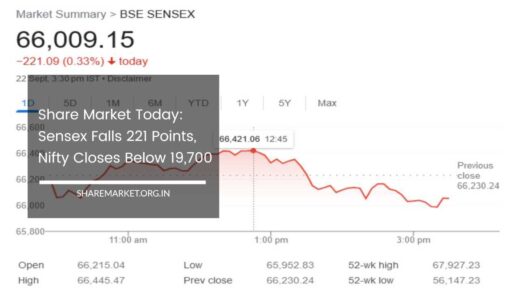Indian Stock Market Analysis

Indian Stock Market Analysis
Indian Stock Market Analysis: A Deep Dive
The Indian stock market has evolved into a significant financial powerhouse, serving as a vital barometer of the country’s economic health. Over the past decade, it has experienced a tumultuous journey marked by impressive highs and challenging lows.
This dynamic landscape has been shaped by a confluence of factors including a burgeoning middle class, rapid technological advancements, and sweeping government reforms.
At the same time, global economic uncertainties, geopolitical tensions, and domestic issues have posed formidable challenges.
This article aims to offer a comprehensive analysis of the Indian stock market, exploring its key drivers, current trends, challenges, and future prospects.
Key Drivers of the Indian Stock Market
- Economic Growth
India’s economic expansion has been a fundamental driver of stock market performance. With a GDP growth rate that has consistently outpaced many other major economies, India’s economic momentum has translated into increased corporate earnings and investor confidence.
A growing economy generally leads to higher consumer spending, business investments, and a favorable environment for companies to flourish.
As a result, the stock market benefits from increased market capitalization and rising stock prices. Additionally, sectors that are closely tied to economic cycles, such as banking, real estate, and consumer goods, often experience significant growth during periods of economic prosperity.
- Demographic Dividend
One of the most compelling aspects of India’s stock market is its demographic dividend. India has one of the youngest populations in the world, with a median age of around 28 years.
This youthful demographic translates into a large and expanding consumer base, which drives growth in consumption-oriented sectors like Fast-Moving Consumer Goods (FMCG), retail, and automobiles.
The increasing purchasing power of this demographic also leads to higher demand for various goods and services, further stimulating corporate earnings and stock market performance.
- Government Reforms
The Indian government has implemented several reforms aimed at creating a more conducive business environment. Key initiatives include:
- Goods and Services Tax (GST): Introduced to streamline the tax system and reduce the cascading effect of multiple taxes, GST has simplified the tax structure, enhanced transparency, and improved the ease of doing business.
- Demonetization: While controversial, the demonetization initiative aimed to curb black money, enhance digital transactions, and increase financial inclusion.
- Infrastructure Development: Investments in infrastructure, such as roads, railways, and ports, have improved connectivity and facilitated economic growth.
These reforms have helped enhance investor confidence, attract foreign investment, and boost market liquidity.
- Global Investor Interest
India’s status as an emerging market has attracted significant interest from global investors. The country’s potential for long-term growth, coupled with its large and diverse economy, has made it an attractive destination for foreign direct investment (FDI) and portfolio investments.
International investors are drawn to India’s growth story, its vibrant entrepreneurial ecosystem, and the opportunities presented by a young, tech-savvy population.
Foreign Institutional Investors (FIIs) and Foreign Portfolio Investors (FPIs) play a crucial role in providing liquidity and influencing market trends.
- Technological Advancements
The digital revolution has profoundly impacted the Indian stock market. Technological advancements have led to the development of sophisticated trading platforms, improved market accessibility, and enhanced data analytics.
The rise of financial technology (fintech) companies has facilitated easier access to investment opportunities and financial products for a broader segment of the population.
Innovations such as algorithmic trading, blockchain technology, and digital wallets have transformed market operations and created new avenues for investment.
Current Trends in the Indian Stock Market
- Sectoral Rotation
The Indian stock market has witnessed a notable sectoral rotation over recent years. Traditionally dominated by sectors like banking, oil & gas, and heavy industry, the market has increasingly shifted towards new-age sectors such as Information Technology (IT), pharmaceuticals, and consumer durables.
This shift reflects changing consumer preferences, technological advancements, and evolving economic dynamics.
The IT sector, for instance, has benefited from the growing demand for digital services and software solutions, while the pharmaceutical sector has seen increased interest due to advancements in healthcare and a focus on innovation.
- Focus on Quality
Investors are increasingly prioritizing companies with strong fundamentals and sustainable growth prospects. This shift towards quality investing is characterized by a preference for companies with robust balance sheets, consistent earnings growth, and effective management.
The emphasis on quality reflects a growing awareness of the importance of financial health and long-term viability in investment decisions.
Investors are also seeking companies with competitive advantages, strong market positions, and effective corporate governance practices.
- Small and Mid-Cap Rally
While large-cap stocks have traditionally attracted significant investor attention, small and mid-cap companies have demonstrated exceptional growth potential in recent years.
These smaller companies often offer higher growth rates and attractive valuations compared to their larger counterparts.
As the economy expands and sectors evolve, small and mid-cap stocks have become increasingly relevant, providing investors with opportunities to tap into emerging trends and new market segments.
- Retail Investor Participation
The surge in retail investor participation is one of the most notable trends in the Indian stock market. Factors such as increased financial literacy, easier access to investment platforms, and a growing culture of personal finance management have contributed to this trend.
The rise of online trading platforms, mobile apps, and low-cost brokerage services has made it easier for individual investors to participate in the stock market. This increased participation has led to greater market liquidity and a broader investor base.
- ESG Investing
Environmental, Social, and Governance (ESG) considerations have gained prominence among investors. ESG investing involves selecting companies based on their performance in areas related to sustainability, social responsibility, and corporate governance.
Investors are increasingly seeking companies that align with their values and demonstrate a commitment to responsible business practices.
This trend reflects a growing recognition of the importance of ethical and sustainable investing in creating long-term value.
Challenges Facing the Indian Stock Market
- Global Economic Uncertainty
The Indian stock market is not immune to global economic uncertainties. Fluctuations in global markets, trade tensions between major economies, and geopolitical risks can significantly impact investor sentiment and market performance.
For instance, trade disputes between major economies like the United States and China can lead to increased volatility and market fluctuations.
Global economic slowdowns or financial crises can also have ripple effects on emerging markets like India.
- Inflation
Rising inflation poses a challenge to the Indian stock market by eroding corporate profits and consumer spending power. Inflationary pressures can lead to increased costs for businesses, which may impact their profitability and stock performance.
Additionally, higher inflation can lead to higher interest rates, which can affect borrowing costs and consumer spending.
Managing inflation and maintaining price stability are crucial for sustaining economic growth and market performance.
- Regulatory Environment
The regulatory environment in India is complex and constantly evolving. Frequent changes in regulations and compliance requirements can create challenges for businesses and investors.
Regulatory uncertainty can impact market confidence and investment decisions. For example, changes in tax laws, foreign investment regulations, or industry-specific policies can have implications for market performance and investor sentiment.
- Market Volatility
The Indian stock market is known for its volatility, characterized by frequent price fluctuations and market swings. Market volatility can be driven by various factors, including economic data releases, corporate earnings reports, and geopolitical events.
While volatility can present opportunities for investors, it can also create uncertainty and impact investor confidence. Managing volatility and adopting a disciplined investment approach is essential for navigating market fluctuations.
- Valuation Concerns
Valuation concerns have been a topic of discussion among investors, especially in sectors experiencing rapid growth.
Some sectors or companies may be trading at high valuations relative to their earnings potential, leading to concerns about potential overvaluation.
Overvalued stocks can pose risks if market conditions change or if growth expectations are not met. It is important for investors to assess valuations carefully and consider factors such as growth prospects, competitive positioning, and financial performance.
Future Outlook
The Indian stock market is poised for continued growth, driven by several long-term structural factors. However, the market is not without its risks, and investors need to adopt a prudent and informed approach. Key factors that will shape the market’s future include:
- Economic Growth
Sustained economic growth will be crucial for the Indian stock market’s performance. Continued expansion of the economy, driven by factors such as domestic consumption, investment, and export growth, will support corporate earnings and market performance.
Economic policies aimed at fostering growth, improving infrastructure, and enhancing business environments will play a key role in shaping the market’s trajectory.
- Government Policies
The effectiveness of government policies and reforms will be critical in determining the market’s future outlook. The government’s ability to implement reforms, promote investment, and create a favorable business environment will impact market performance.
Initiatives related to taxation, regulation, and infrastructure development will influence investor sentiment and market dynamics.
- Global Factors
Global economic developments and geopolitical factors will continue to influence the Indian stock market. Trends such as global trade dynamics, international monetary policies, and geopolitical tensions can impact market performance and investor sentiment.
Monitoring global factors and understanding their potential impact on the Indian market will be important for investors.
- Technological Disruptions
Technological advancements will continue to create new investment opportunities and disrupt existing business models.
Emerging technologies such as artificial intelligence, blockchain, and renewable energy will drive innovation and create new growth areas.
Investors who stay informed about technological trends and their potential impact on industries and companies will be better positioned to capitalize on new opportunities.
Investment Strategies
Given the complex and dynamic nature of the Indian stock market, investors should consider the following strategies:
- Long-Term Perspective
Adopting a long-term perspective is essential for navigating market fluctuations and benefiting from the power of compounding.
Investing with a focus on long-term growth rather than short-term gains can help investors ride out market volatility and achieve sustainable returns.
- Diversification
Diversification involves spreading investments across different asset classes, sectors, and geographic regions to reduce risk.
By diversifying their portfolios, investors can mitigate the impact of market volatility and enhance their chances of achieving consistent returns.
Diversification helps balance risk and reward, providing a buffer against potential losses in specific investments.
- Quality Focus
Focusing on companies with strong fundamentals, solid financial performance, and sustainable growth prospects is crucial for successful investing.
Investors should prioritize companies with robust balance sheets, effective management, and competitive advantages.
Conducting thorough research and due diligence before making investment decisions is essential for identifying quality opportunities.
- Regular Review
Periodically reviewing investment portfolios and making necessary adjustments is important for staying aligned with investment goals and market conditions.
Regular reviews help investors assess the performance of their holdings, rebalance their portfolios, and adapt to changing market dynamics.
Staying informed about market trends and economic developments can guide investment decisions and portfolio adjustments.
- Financial Planning
Setting clear investment goals and creating a financial plan can help investors stay disciplined and focused. A well-defined financial plan outlines investment objectives, risk tolerance, time horizon, and asset allocation.
It serves as a roadmap for making informed investment decisions and achieving long-term financial goals.
Final Remarks
The Indian stock market has experienced significant growth and development, reflecting the nation’s economic progress and evolving financial landscape.
While challenges exist, the long-term outlook remains positive, driven by factors such as economic growth, demographic trends, and technological advancements.
Investors who adopt a prudent and disciplined approach, stay informed about market trends, and consider professional advice will be well-positioned to navigate the complexities of the Indian stock market.
As with any investment, conducting thorough research and understanding the associated risks are essential for making informed decisions and achieving financial success.
Note: This article provides a general overview of the Indian stock market and is not intended as financial advice. Investors should conduct their own research or consult with a financial advisor before making investment decisions.


















Great